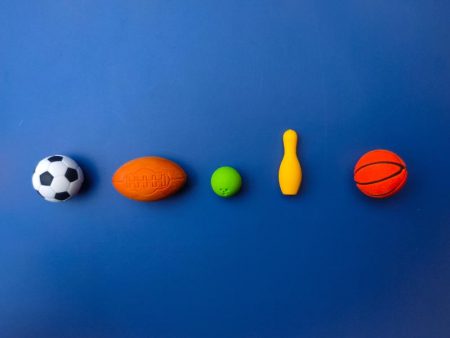How Much Does a Pokie Machine Cost in Australia?
Pokie machines, also known as slot machines, are a popular form of gambling in Australia. But how much does a pokie machine cost? This article is here to answer that question.
What is a Pokie Machine?
Pokie machines, also known as slot machines, are a form of wagering game in which players place bets hoping to win money. The machine pays out when certain reel combinations line up after a spin. Pokie machines are part of the gaming industry in Australia and are primarily located in pubs, clubs and casinos.
How Much Do Pokie Machines Cost?
The cost of pokie machines varies depending on the type, age and features of the machine. On average, a standard pokie machine can cost anywhere from $1,000 to $6,000. In addition to the initial cost of the machine, operators will typically have to pay an annual licence fee to the relevant state government. This can range from $500 to over $1,000 per machine.
What are the Main Variables That Contribute to the Cost of Pokie Machines?
-
- Age: Older machines are typically less expensive than new or refurbished machines. Refurbished models may also be less pricey than brand new ones.
-
- Brand: Some popular brands of pokie machines are more expensive than others due to their high-end technology.
-
- Features: Pokie machines with a higher number of reels and more features will be more expensive.
Conclusion: How Much Does a Pokie Machine Cost in Australia?
The cost of a pokie machine in Australia can range from $1,000 to $6,000, depending on the age, brand and features of the machine. Additionally, operators will typically need to pay an annual licence fee of up to $1,000 per machine. As such, the total cost of a pokie machine can quickly add up, making it an expensive form of entertainment.
How much does it cost to buy a pokie machine in Australia?
The cost of a pokie machine in Australia is highly dependent on the type of machine. It could cost anywhere from $1200 to over $20,000.
What is the legal minimum and maximum bet allowed on pokie machines in Australia?
In Australia, the legal minimum bet allowed on pokie machines is 5 cents and the legal maximum is $10.
What is the average bet amount on pokie machines in Australia?
The average bet amount on pokie machines in Australia is $10.87 per play.
What is the minimum bet amount on pokie machines in Australia?
The minimum bet allowed on pokie machines in Australia is AU$0.01, although this varies from venue to venue. Some casinos will allow for AU$0.05 or AU$0.10 as the minimum bet.
What is the maximum bet amount on pokie machines in Australia?
The maximum bet amount on pokie machines in Australia is up to $5 per spin. However, some machines may have a higher maximum betting amount that can reach up to $10 or more.
What is the maximum loss allowed on pokie machines in Australia?
Under Australian law, the maximum loss allowed on pokie machines is $120 per hour for every individual playing the machine.
What is the minimum return rate for pokies in Australia?
The minimum return rate for pokies in Australia is 87%. This is specified in the National Gambling Framework which was established by the Federal Government in 2008.
What is the maximum return rate for pokies in Australia?
The maximum return rate for pokies in Australia is 87%. This means that on average, for every dollar spent on pokies, 87 cents will be returned to the players in winnings.
What is the minimum return rate for pokies in Australia?
The minimum return rate for pokies in Australia is 87%. This is specified in the National Gambling Framework which was established by the Federal Government in 2008.
What is the maximum return rate for pokies in Australia?
The maximum return-to-player (RTP) rate for pokies in Australia is 87%. This means that for every $100 wagered on a pokie machine in Australia, players can expect to return $87 dollars on average over the long run.
What is the minimum legal return rate for pokies in Australia?
The minimum legal return rate for pokies in Australia is 87%. Any pokie machine that has a return rate lower than this is not legal and can be reported to the local gambling authorities.
What is the maximum legal return rate for pokies in Australia?
The maximum legal return rate for pokies in Australia is 87%. This rate is set by the Australian government and any pokie machine that has a return rate higher than this is not legal and can be reported to the local gambling authorities.
What is the minimum legal return rate for pokies in Australia?
The minimum legal return rate for pokies in Australia is 87%. Any pokie machine that has a return rate lower than this is not legal and can be reported to the local gambling authorities.
What is the maximum legal return rate for pokies in Australia?
The maximum legal return rate for pokies in Australia is 87%. This rate is set by the Australian government and any pokie machine that has a return rate higher than this is not legal and can be reported to the local gambling authorities.
What is the minimum legal return rate for pokies in Australia?
The minimum legal return rate for pokies in Australia varies from state to state. It is typically required to be set at 87% or more of all bets returned to players as accrued winnings.
What is the average return rate for pokies in Australia?
According to the 2016 Productivity Commission Report, the average return rate for pokies in Australia is 87.9%. This is slightly higher than the legal minimum of 87%.
What percentage of pokies revenue goes to Australian state governments?
In 2020, Australian state governments received over $5.6 billion in taxes and other charges from the pokies sector which represents roughly 20-30% of total pokies revenue.
What percentage of poker machine profits go to state governments?
In Australia, poker machine profits vary by state, but generally range from 18% to 33% of net profits, with the majority going to the state government in taxes.
“What percentage of poker machine losses go to state governments?”
According to a 2019 report from the Australian Gambling Research Centre, state governments collect about 32% of all poker machine losses. Most of this money goes to funding various services such as health, education, and infrastructure.
What percentage of gambling revenue goes to state governments?
The exact percentage of gambling revenue that goes to state governments varies by jurisdiction. Generally, state governments receive between 20-50% of gambling revenue in the form of taxes, fees, or a share of the profits.
What percentage of casino profits go to the government?
The exact percentage of casino profits that are taxed and paid to the government varies by jurisdiction, but the average range is between 15% and 40%. Some jurisdictions may also levy an additional fee on top of the regular taxes.
What is the tax rate on casino profits?
The tax rate on casino profits varies by jurisdiction. States and local governments may impose corporate income taxes and gaming taxes on the profits of a casino. The tax rate for gaming taxes will vary from 0% to 50%, with the average rate set between 10-30%.
What are the tax implications for lottery winnings?
Lottery winnings may be subject to taxation depending on your individual circumstances. Generally, federal tax is withheld from lottery winnings upon receipt of the winnings. Depending on where you live and the amount of your prize, you may be required to pay additional taxes at the state or municipal level. You should speak to a qualified tax adviser to get a full understanding of the tax implications of your winnings.
What are the tax implications for lottery winnings for minors?
Tax implications for lottery winnings for minors depend on a few factors. Minors who win lottery prizes may be subject to the same tax rate as adults, depending on their age, the amount of their winnings and the state where the prize was won. In some states, minors may not be allowed to claim lottery prizes at all. In other states, a parent or legal guardian may be required to claim the prize and the income may be taxed at the parent’s or guardian’s tax rate. Depending on the state, lottery winnings may also be required to be placed in a trust or given to a guardian until the minor reaches a specific age. Before claiming any lottery prize, check with the lottery commission or with a qualified tax advisor to understand the specific tax implications of lottery winnings for minors.
What are the consequences of claiming lottery winnings on a minor’s taxes?
If a minor attempts to claim lottery winnings on their taxes, they may face a number of consequences. Generally, minors are not permitted to claim lottery winnings until they reach the age of majority. Until then, the minor’s parent or guardian must be responsible for claiming lottery winnings on their behalf. If a minor attempts to claim lottery winnings on their taxes, they may be subject to paying back the winnings and facing penalties, including potential fines and/or criminal charges. Additionally, any adults involved in the attempted fraud may also be subject to similar penalties. It is important to consult with a qualified tax adviser and/or the lottery commission before claiming a lottery prize to ensure that all applicable tax implications are understood.
What is the legal age to claim lottery winnings in the US?
The legal age to claim lottery winnings in the US varies from state to state, but generally the minimum age is 18. It is important to check with the specific rules of the lottery in which you are participating to make sure you are of the legal age to claim any lottery winnings.
What is the minimum age to purchase lottery tickets in the US?
The minimum age to purchase lottery tickets in the US varies from state to state. Generally speaking, the minimum age to purchase lottery tickets is 18 years old. Some states have lower minimum ages, such as 16 or 17. You should check with your state’s lottery commission for more specific age requirements.
What is the legal gambling age in the US?
The legal gambling age in the United States varies by state. Generally, the legal age for gambling in most states is 21, although there are some exceptions where the age is 18-20 depending on the state. It is important to check with the gambling laws in each individual state prior to gambling.
What is the minimum gambling age in Las Vegas?
The minimum gambling age in Las Vegas is 21 years old. All casinos in Las Vegas have a policy that requires all players to be at least 21 years old in order to gamble. All patrons are required to provide valid ID at the casino before being granted admittance.
What is the legal gambling age in Nevada?
The legal gambling age in Nevada is 21. However, some casinos may have a lower age requirement for certain types of gambling, such as slot machines. It is important to check with the individual casino for any specific age requirements.
What is the legal drinking age in Nevada?
21 Is the legal drinking age in Nevada. It is unlawful for any person under the age of 21 to consume alcoholic beverages in the state. It is also unlawful for any person over the age of 21 to provide alcohol to persons under the age of 21.
§ END OF DOC
What is the minimum age to purchase alcohol in Nevada?
The minimum age to purchase alcohol in Nevada is 21. It is illegal for any person under the age of 21 to purchase, possess, or consume alcohol in the state, and it is also illegal for any person over the age of 21 to provide alcohol to a person under the age of 21.
What is the legal drinking age in Nevada?
The legal drinking age in Nevada is 21. It is illegal for any person under the age of 21 to consume or purchase alcohol in the state, and it is also illegal for any person over the age of 21 to provide alcohol to persons under the age of 21.
What is the penalty for underage drinking in Nevada?
Underage drinking in Nevada is a misdemeanor offense. The penalties for underage drinking can include but are not limited to fines of up to $1000, imprisonment for up to six months, community service, counseling, license suspension for up to 90 days, and mandatory attendance at a drinking driver program. A person cited for underage drinking may also have to pay for court fees, processing fees, and the cost of an alcohol awareness class.
What is the legal drinking age in Nevada?
The legal drinking age in Nevada is 21 years old. It is unlawful for any person under the age of 21 to consume alcohol in the state, and it is also unlawful for any person over the age of 21 to provide alcohol to persons under the age of 21.
What is the minimum age to consume alcohol in Nevada?
The minimum legal drinking age in Nevada is 21. It is illegal for any person under the age of 21 to consume, possess, or purchase alcohol in the state, and it is also illegal for any person over the age of 21 to provide alcohol to a person under the age of 21.
What is the legal drinking age in Nevada?
The legal drinking age in Nevada is 21. It is illegal for any person under the age of 21 to consume or purchase alcohol in the state, and it is also illegal for any person over the age of 21 to provide alcohol to persons under the age of 21.
What is the legal drinking age in Las Vegas?
The legal drinking age in Las Vegas is 21 years old. It is unlawful for any person under the age of 21 to consume alcohol in the city, and it is also unlawful for any person over the age of 21 to provide alcohol to persons under the age of 21.
What is the legal drinking age in the rest of Nevada?
The legal drinking age in the rest of Nevada is 21. It is unlawful for any person under the age of 21 to consume or purchase alcohol in the state, and it is also unlawful for any person over the age of 21 to provide alcohol to persons under the age of 21.
What is the legal drinking age in Las Vegas, Nevada?
The legal drinking age in Las Vegas, Nevada is 21. It is unlawful for any person under the age of 21 to consume or purchase alcohol in the city, and it is also unlawful for any person over the age of 21 to provide alcohol to persons under the age of 21.
What is the minimum drinking age in Nevada?
The minimum drinking age in Nevada is 21 years old. It is unlawful for any person under the age of 21 to consume alcohol in the state, and it is also unlawful for any person over the age of 21 to provide alcohol to persons under the age of 21.
What is the legal drinking age in Nevada for on-premises consumption?
The legal drinking age in Nevada for on-premises consumption is 21. It is unlawful for any person under the age of 21 to consume alcohol in the state, and it is also unlawful for any person over the age of 21 to provide alcohol to persons under the age of 21.
What is the legal drinking age for minors in Nevada at on-premises establishments?
The legal drinking age for minors in Nevada for on-premises establishments is 21. It is unlawful for any person under the age of 21 to consume alcohol in the state, and it is also unlawful for any person over the age of 21 to provide alcohol to persons under the age of 21.

![Ignition Casino Australia Review & Bonuses [2024]](https://ibebet.com/au/wp-content/uploads/sites/17/2023/10/ignition-casino-logo-100x100.webp)
![Ripper Casino Australia Review & Bonuses [2024]](https://ibebet.com/au/wp-content/uploads/sites/17/2023/10/ripper-casino-270x270-1-100x100.png)




![Ignition Casino Australia Review & Bonuses [2024]](https://ibebet.com/au/wp-content/uploads/sites/17/2023/10/ignition-casino-logo-120x120.webp)
![Ripper Casino Australia Review & Bonuses [2024]](https://ibebet.com/au/wp-content/uploads/sites/17/2023/10/ripper-casino-270x270-1-120x120.png)

